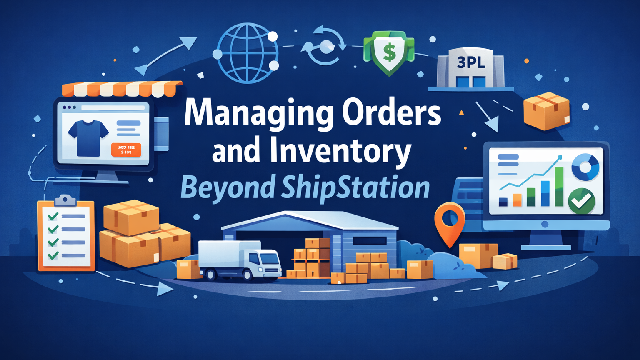Leveraging AI for Enhanced B2B CRM: A Comprehensive Guide
Navigating today's data-driven business landscape? Strong customer relationships are not optional; they are vital. Elevating your B2B CRM game involves technologies that can be leveraged through AI software development. Forget tech buzzwords; AI is a genuine game-changer for CRM enhancement.
In this post, we will dig into the critical role AI plays in B2B operations. Not only will we discuss the specific challenges it resolves, but we will also outline a selection of must-have tools.
If you are contemplating integrating AI into your CRM system, our step-by-step guide can help. You will find real-world success stories and potential risks laid out for your consideration. So, let's explore how AI can revolutionize your B2B CRM.
3 Challenges to Solve in B2B CRM Challenges with AI
B2B CRM presents unique challenges, including data overload, identifying sales opportunities, and maintaining personalized customer interactions at scale. Today’s AI solutions address all these three issues to help you get better results and outcomes from your business. Additionally, an AI business plan generator can streamline the process of creating comprehensive strategies tailored to your needs. Let’s learn how AI is useful to address each problem in detail.
Data Overload
Feeling swamped by too much data coming your way? In a B2B setup, data comes in fast from all sides—emails, social media, and more. AI can be your data helper. Using an AI-powered chat PDF, you can summarize a large PDF document filled with data and numbers. It sorts all this data and turns it into simple tips you can actually use. This way, you don't feel lost in a sea of numbers and facts. An AI Email Assistant can also help manage your inbox, organizing and prioritizing emails so you can focus on what's most important.

Source: Freepik.com
Sales Opportunity Identification
Do you want your sales team to work smarter, not harder? AI is like a super-smart assistant that scans tons of data to find out who's likely to buy from you. This means your sales team can talk to people who are really interested, saving time and making more money for your business. Your sales team should also think about using AI for sales enablement to further enhance their efficiency and effectiveness.
Personalization at Scale
Got lots of customers? That's great but tough, too. Imagine trying to remember every person's likes and dislikes. AI tools like chatbots can help. They talk to each customer as if they're the only one, even when there are thousands. This makes your customers feel special, which is good for your business. Moreover, if you are concerned about converting leads, read these top tips on converting potential leads into sales.
4 Types of AI Tools
Now, let's explore some of the AI tools that can revolutionize your B2B CRM strategy:
1. Predictive Analytics

Source: Freepik.com
Predictive analytics leverages machine learning algorithms to analyze historical data and predict future outcomes. In B2B CRM, this means foreseeing customer needs, sales trends, and potential churn using predictive tools like Churnfree, thereby enabling proactive decision-making. Partnering with an AI marketing agency can be crucial in this process. These agencies specialize in integrating advanced AI technologies into CRM systems, which enhances data analysis and customer insights.
2. Chatbots and Virtual Assistants
AI-powered chatbots provide instant responses, assist with inquiries, and even initiate follow-ups. They enhance customer support and free up valuable human resources for more complex tasks.
3. Natural Language Processing (NLP)
NLP enables sentiment analysis, allowing you to gauge customer satisfaction and sentiment through text analytics tools. As you get the knowledge, you are able to make better decisions related to customer engagement strategies.
4. Recommendation Engines
These engines use AI to suggest relevant products or services to customers based on their past behavior and preferences, boosting cross-selling and upselling opportunities.
Read this blog post which helps you to know automating lead generation tools and strategies that you should use for growing your business while implementing AI in your business.
Next, let’s learn about the steps that help to implement AI in the CRM systems to get good results for future decision-making.
6 Implementation Steps
Integrating AI into your B2B CRM system may seem daunting, but it can be simplified into these steps:
1. Assess Your Needs
Identify the specific challenges you want to address with AI. Whether it's improving lead generation, customer support, or sales forecasting, clarity in your objectives is crucial. Consider AI strategy consulting to help align your AI initiatives with your overall business goals and optimize their implementation for maximum effectiveness.
2. Choose the Right AI Tools
Select AI tools that align with your needs. Dynamics 365 CRM integration with various AI solutions can be explored to customize your CRM with the appropriate AI components.
If you need help cleaning your CRM data, you can connect your CRM to LinkedIn to make sure that job changes are tracked to automatically update CRM contacts when they change company or position.
3. Data Collection and Preparation
Ensure that your data is clean, organized, and readily accessible. It also should be secure, so implementing a managed detection and response service will monitor and ensure your data is protected. AI's accuracy depends on high-quality data.
4. Integration
Work with your CRM service provider or IT team to seamlessly integrate AI tools into your existing system. Moreover, consider implementing an AIOps solution to further streamline operations and enhance efficiency.
5. Training and Testing
Train your team to use AI tools effectively and conduct rigorous testing to iron out any issues.
6. Continuous Monitoring and Optimization
AI models improve over time. As you continuously monitor the performance of the integrated AI models in your CRM solutions, you are able to make better decisions within your business over the time.
Case Studies
Real-world examples demonstrate AI's efficacy in B2B CRM, where it optimizes customer interactions, enhances lead scoring, and automates personalized marketing strategies, driving more efficient sales processes.
Additionally, integrating a robust rpc node provider into the CRM architecture ensures seamless data access and communication between various blockchain networks.
1. Salesforce Einstein
Salesforce integrated AI into its CRM to help sales teams prioritize leads, resulting in a 30% increase in conversion rates. By leveraging salesforce development services, businesses can customize and optimize their CRM systems to better align with their sales strategies. These tailored solutions enhance the AI's capabilities, enabling more efficient lead management and boosting overall sales performance.
2. IBM Watson
IBM's AI platform assists B2B marketers in understanding customer behavior and improving campaign targeting, leading to a 25% increase in marketing-generated revenue.
Risks and Limitations
While the benefits of AI in B2B CRM are undeniable, it's essential to acknowledge potential risks, including data quality issues, security concerns, and the need for ongoing maintenance and training. Robust data governance and security protocols are imperative to mitigate these risks.
Conclusion
In conclusion, integrating AI tools into your B2B CRM system can be a transformative journey, revolutionizing how you engage with customers, streamline operations, and boost revenue. By addressing common B2B CRM challenges, leveraging predictive analytics, chatbots, and other AI tools, and following a systematic implementation process, you can stay ahead in the competitive landscape. Embrace AI in B2B CRM, and unlock the full potential of your customer relationships. The future of B2B CRM is here, and it's powered by AI.







